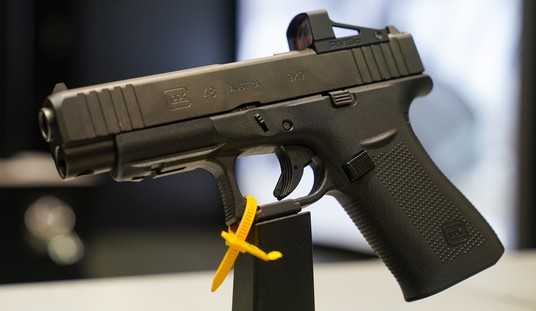In the wake of Cargill, it's clear that the ATF doesn't have the authority to unilaterally redefine what a machine gun is and what it isn't. They started with bump stocks, and there's another case that's not all that different that's still in the mix.
Forced reset triggers.
For anyone who is unfamiliar, the short version is that forced reset triggers do just that, they force a reset, which makes it easier to fire another round quickly. The ATF has tried to argue that this basically makes them machine guns because people can shoot really quickly.
They still haven't answered my query as to whether or not Jerry Miculek should be registered or not.
Anyway, they tried and it went to court. They have not been successful there, but they had a hope. They hoped a judge would issue a stay that basically would let their regulations remain in place.
Federal District Court Judge Reed O’Connor for the Northern District of Texas denied the Bureau of Alcohol, Tobacco, Firearms and Explosives (ATF) request for a stay on his ruling that blocked the ATF from taking enforcement actions over force reset triggers (FRT).
Earlier, Judge Reed O’Connor ruled that the ATF exceeded its authority when it determined that FRTs were machine guns in the National Association for Gun Rights v. Garland. FRTs use the bolt carrier group (BCG) of an AR-15-style firearm to reset the trigger of the gun. This reset allows the shooter to increase the rate of fire of a firearm. The ATF claimed that since the rate of fire approaches that of a machine gun, it made the device a machine gun conversion device. Under federal law, any device that converts a semi-automatic firearm to a machine gun is itself a machine gun.
Machine guns are defined under the National Firearms Act of 1934 (NFA). The actual law doesn’t reference a fire rate when determining a machine gun. According to the law, a machine gun fires multiple rounds with a single function of the trigger. An FRT doesn’t work that way. A firearm equipped with an FRT expels one round per trigger function. The ATF made the same argument about bump stocks in the Cargill case, but the Supreme Court ruled against the government and stated that bump stocks were not machine guns.
...The ATF tried to use Chevron deference in the Cargill case, but SCOTUS rejected that tactic, stating that the definition of a machine gun is not unclear or ambiguous. Chances are high that the court would come to the same conclusion in this case. The ATF claimed that not issuing a stay would cause irreparable harm to public safety. The judge rejected the argument, saying that the only people charged with having an FRT were also charged with other crimes, so possessing an FRT was only an “add-on” crime. He also stated he did not believe that the defense was likely to succeed on the merits of the case.
Let's remember that in the Cargill decision, we got into the nitty-gritty of what a bump stock actually does, and that's relevant to this case in a very specific manner. A machine gun is defined as a gun that's capable of firing multiple rounds with a single activation of the trigger. A bump stock merely allows that activation to happen much faster, which doesn't fall under the definition in the National Firearms Act or any other act of Congress.
Forced reset triggers are basically the same thing in that regard. They might work very differently, but they only facilitate pulling that trigger faster. They don't change anything else about the functioning of a firearm. They don't change a semi-automatic into anything else.
So the ATF continuing to defend this is downright laughable since it doesn't take a legal scholar to see that this is never going to fly, especially post-Cargill, much less post-Bruen.
Obviously, I agree that a stay isn't warranted, but I'm still just galled by the cajones on the federal government to try to defend this.
Then again, this is the Biden administration. I shouldn't be surprised by any of it, and if Kamala Harris wins, we're getting at least four more years of this nonsense.








Join the conversation as a VIP Member